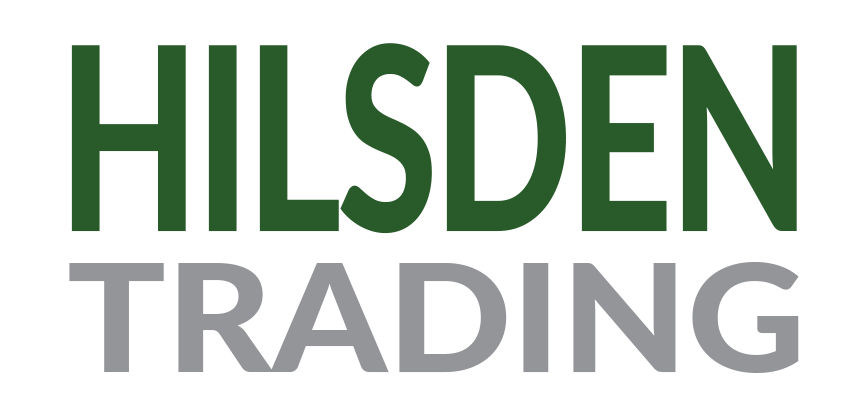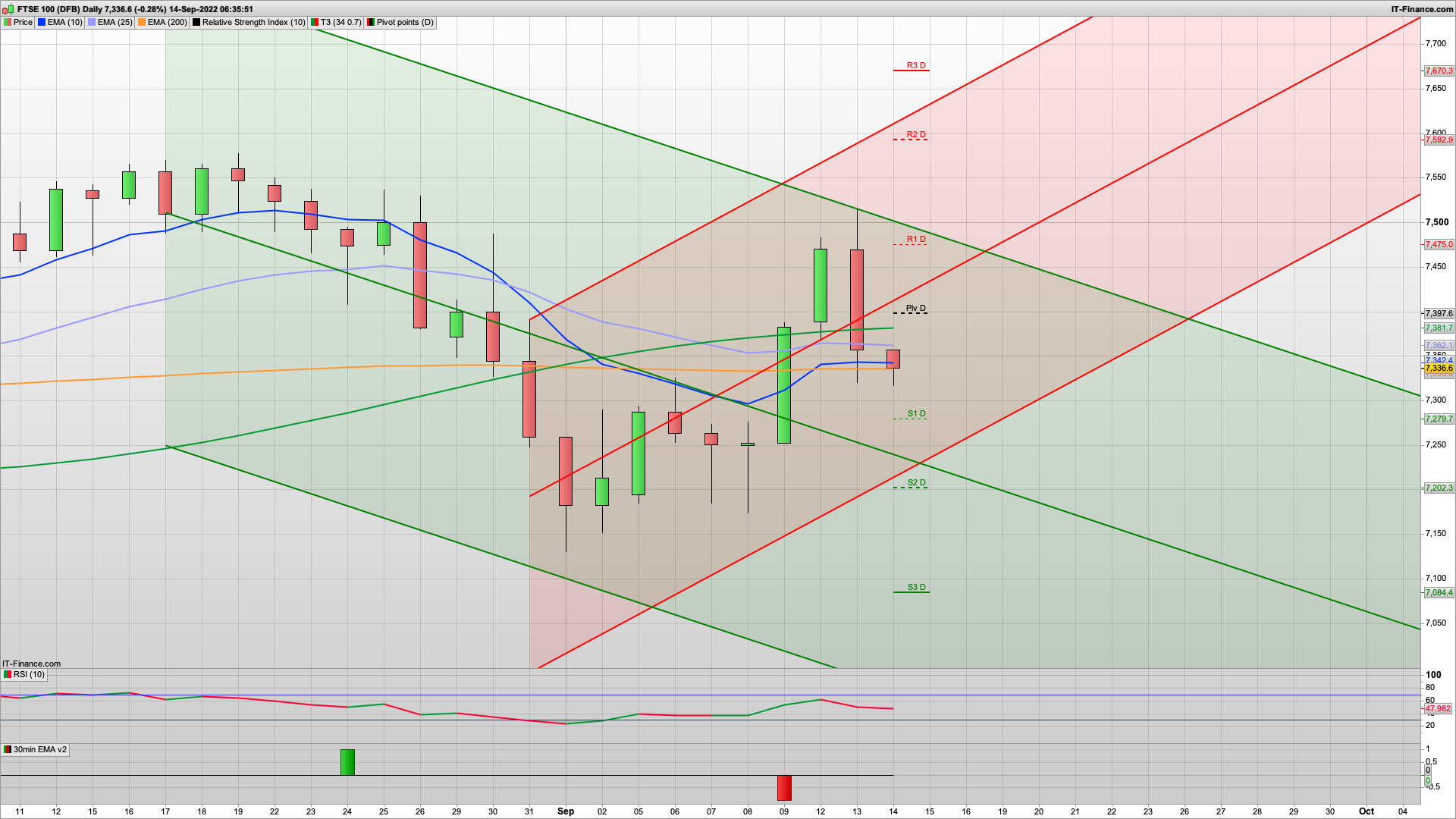FTSE100 Analysis | Signals | Forecast | Prediction | FTSE 100 Outlook | Trading help
The FTSE 100 closed Tuesday 1.17pc lower, with retailers Ocado and Next, and property development companies Segro and Persimmon plc among the biggest fallers.
Owner of British Airways — IAG also fell by 4.37pc. Aveva Group saw the largest increase at 3.08pc, followed by healthcare giant Haleon and BP.
The pound dropped sharply against the dollar last night and stocks fell around the world after unexpectedly high US inflation data raised fears of a recession in the world’s largest economy. Consumer prices in the US rose by 8.3pc in the 12 months to August, the US Bureau of Statistics said, faster than the 8.1pc economists had expected. Despite overshooting forecasts, annual inflation fell for the second month in a row and has fallen consistently from a peak of 9.1pc in June.
But core inflation – a measure of price rises excluding the more volatile food and energy indices – rose last month. A large increase in housing costs prompted core inflation to jump from 5.9pc to 6.3pc, close to the March peak of 6.5pc. The persistence of price rises fuelled market expectations that the Federal Reserve will be forced to push ahead with aggressive rate rises to tame inflation.
The prospect of more large rate rises makes hopes of a so-called “soft landing” for the US economy more remote. Stocks sold off sharply on Tuesday, amid fears that the Fed will be forced to trigger a recession to get inflation under control.
Asian shares tumbled, the dollar held firm and two-year Treasury yields hit a new 15-year high on Wednesday, as a U.S. inflation report dashed hopes for a peak in inflation, fuelling bets rates may have to be raised higher for longer. Asian stocks and bonds tumbled in the wake of the broad-based selloff on Wall Street while the yen strengthened after Japan warned of possible intervention in the currency market.
Wall Street saw its steepest fall in two years, the safe-haven dollar posted its biggest jump since early 2020, and two-year Treasury yields, which rise with traders’ expectations of higher Fed fund rates, jumped to the highest level in 15 years.
Equity indexes in Japan, Hong Kong and Australia slumped after US shares had their biggest drop in more than two years, with the S&P 500 falling more than 4% and the Nasdaq 100 sliding more than 5%. European equity futures fell while US contracts edged higher.
The hotter-than-expected US inflation reading that triggered the stock rout has swaps traders certain the Federal Reserve will raise interest rates three-quarters of a percentage point next week, with some wagers appearing for a full-point move. That leaves investors weighing the prospect of tighter conditions across a swath of markets after jumping back into risk-sensitive assets in recent days on hopes that inflation would cool more.
The two-year Treasury yield, the most sensitive to policy changes, fluctuated in Asia after jumping as much as 22 basis points, pushing it more than 30 basis points above the 10-year rate and deepening an inversion in what is generally a recession warning. Australia’s benchmark 10-year yield jumped about 10 basis points.
CPI
The US consumer price index increased 0.1% from July, after no change in the prior month, Labor Department data showed. From a year earlier, prices climbed 8.3%, a slight deceleration but still more than the median estimate of 8.1%. So-called core CPI, which strips out the more volatile food and energy components, also topped forecasts.
Ugly Selloff
Inflation data sparked a broad-based stock selloff that gave equities their worst day in more than two years. The S&P 500 tumbled more than 4%, while Nasdaq 100 losses surpassed 5%. The carnage looks to be heading Asia’s way, with futures signaling drops of more than 2% in Japan, Australia, Hong Kong and Taiwan. The two-year Treasury yield, the most sensitive to policy changes, jumped as much as 22 basis points, pushing it more than 30 basis points above the 10-year rate and deepening an inversion in what is generally a recession warning. The dollar surged.
Xi and Putin
After almost 1,000 days in China, Xi Jinping will finally venture abroad this week for the first time since the Covid-19 pandemic started. Xi will appear alongside Russian leader Vladimir Putin to to showcase his vision for a viable alternative to a US-led world order. On Thursday, on the sidelines of a Chinese-founded security forum in Uzbekistan, the pair will hold their first in-person meeting since Russia invaded Ukraine. It’s a sign that Beijing sees the relationship as crucial to countering the US. China has so far avoided doing anything that would make it subject to US sanctions or help Russia win the war.
Recommended Broker
IC Markets – offers market leading pricing and trading conditions by providing clients with True ECN Connectivity; this allows you to trade on institutional grade liquidity from the world’s leading investment banks, hedge funds and dark pool liquidity execution venues. Highly recommended!
Membership and Live Trading
If you would like more detailed analysis for FTSE100, DAX, Gold and S&P, including the trades that I am looking to take myself, then please join my active members community.
What you get
- Daily Analysis pre market open (sent around 7am each day) for FTSE100, DAX40, Gold and S&P500.
- Daily email pre market includes my trading plan for the day including ORDER levels, with stops and targets/limits
- Telegram live trading room and webinar group membership for discussion and realtime trade updates
Keep up to date with new content, free sign up below with just your email address

